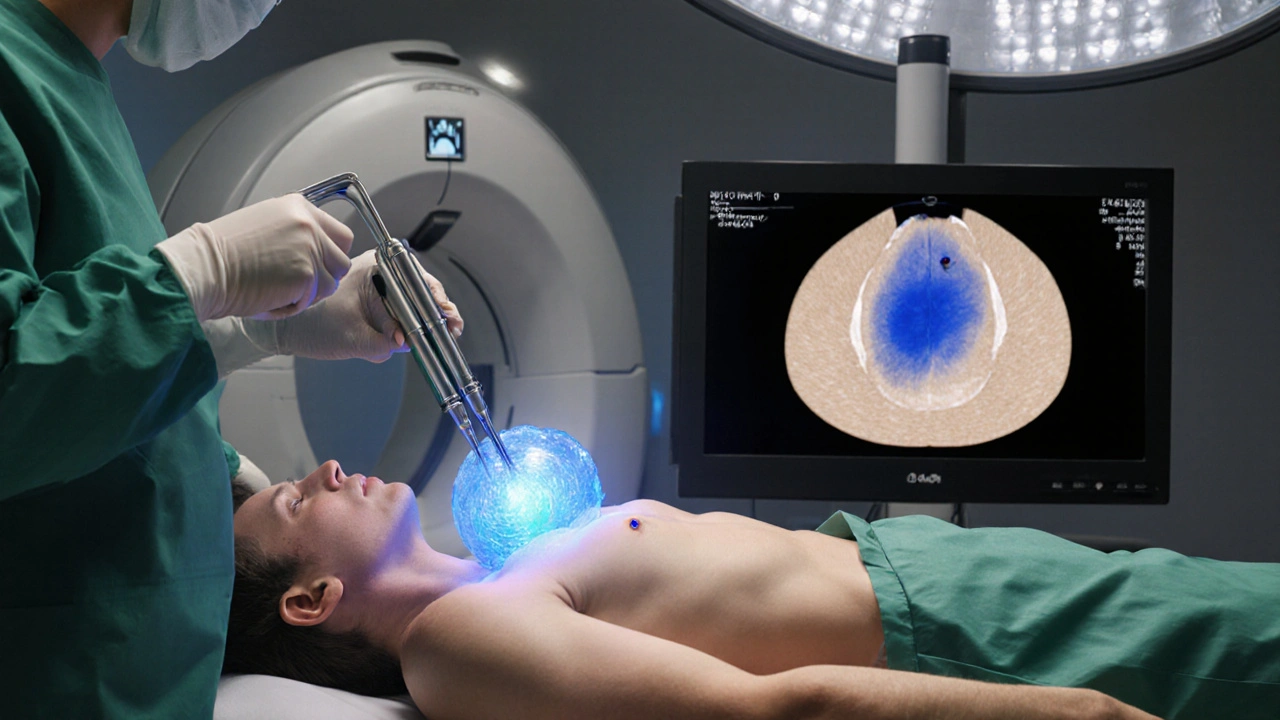Renal Cell Carcinoma: Overview & Treatment Insights
When talking about renal cell carcinoma, the most common form of kidney cancer that starts in the lining of small tubes in the kidney. Also known as RCC, it typically shows up in adults over 50 and can spread to lungs, bones or brain if left untreated. Kidney cancer, a broader category that includes several tumor types is the umbrella term, and RCC makes up about 90% of those cases. The disease often begins without symptoms, so imaging tests like CT or MRI are essential for early detection. Attribute‑value details matter: median age at diagnosis ≈ 60 years, male‑to‑female ratio ≈ 2:1, and clear‑cell subtype accounts for roughly 70% of cases.
Key Diagnostic Tools and Staging
Accurate staging relies on the TNM system, where nephrectomy, surgical removal of the kidney or tumor often serves both as a treatment and a way to obtain tissue for pathology. A partial nephrectomy preserves kidney function when the tumor is small, while a radical nephrectomy removes the entire organ for larger masses. Imaging gives the tumor size (T), nodal involvement (N), and metastatic spread (M). Blood tests for hemoglobin, calcium, and lactate dehydrogenase can hint at aggressive disease. Together, these tools create a clear picture that guides therapy choices.
Once the stage is set, doctors look at molecular features. Many RCC tumors have VHL gene mutations that trigger over‑production of VEGF, a protein that promotes blood vessel growth. This biological fact opens the door for targeted therapy, drugs that block specific pathways tumors use to grow such as sunitinib or pazopanib. These agents have become standard for metastatic disease, improving progression‑free survival compared with older chemotherapy options.
In recent years, immunotherapy, treatments that boost the body’s own immune response against cancer cells has reshaped the landscape. Checkpoint inhibitors like nivolumab or pembrolizumab target PD‑1, releasing the brakes on T‑cells so they can attack the tumor. Some protocols combine immunotherapy with targeted agents, aiming for synergistic effects. Clinical data show higher response rates and longer overall survival for many patients, especially those with poor‑risk disease.
Choosing the right approach depends on several factors: tumor size, location, patient health, and molecular markers. For localized RCC, surgery alone often cures the disease. When the tumor has spread, a mix of targeted therapy and immunotherapy offers the best chance to control growth. Ongoing trials are testing new combos, like axitinib plus pembrolizumab, and researchers are exploring biomarkers that predict which patients will benefit most.
Beyond medical treatments, lifestyle tweaks can support overall health. Maintaining a healthy weight, staying active, and avoiding smoking reduce the risk of recurrence. Regular follow‑up scans every 6‑12 months help catch any new lesions early. If you or a loved one faces RCC, understanding these options empowers you to discuss a personalized plan with your doctor.
Below you’ll find a curated list of articles that dig deeper into each of these topics – from surgical techniques and drug comparisons to patient stories and practical tips for managing side effects. Dive in to get the details you need to make informed decisions about renal cell carcinoma care.
Cryoablation for Advanced Renal Cell Carcinoma: Benefits, Risks & Outcomes
Explore how cryoablation works for advanced renal cell carcinoma, review clinical evidence, compare it to other ablation methods, and learn patient selection, risks, and future trial updates.
Read More
